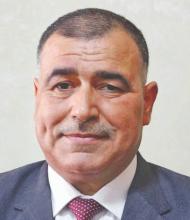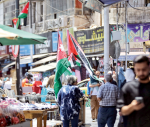You are here
Reuters and the 'misleading' news alert ... questions about the timing of acknowledging the mistake
Feb 19,2025 - Last updated at Feb 19,2025
The global news agency Reuters has recently acknowledged retracting a report it hastily published on February 11, which included a truncated statement attributed to His Majesty King Abdullah during his meeting with US President Donald Trump at the White House.
The acknowledgment came six days after the misleading report was published, raising questions about the delayed correction and whether the mistake was intentional, especially as it was within a sensitive political context.
In its retraction, Reuters explained in a note to subscribers (not available on its public website) that the breaking news was published without providing the King’s introductory remarks on the proposal put together by Arab countries to resolve the Gaza crisis, which consequently led to distorting the context of His Majesty's statement. However, what caught attention was the time gap between the publication date (February 11) and the acknowledgment of the error (February 17), leading observers to question the reasons for the delay. Was there any intention to distort Jordan's image as a neutral mediator? Was the agency's retraction prompted by public pressure following the dissemination of the truncated statement? Was the misleading report intentional?
What further complicates the situation is that Reuters did not provide a clear explanation for the delay, but only said that the news alert on February 11 "did not meet editorial standards," which is a vague justification that does not answer the legitimate questions surrounding the time gap.
Regarding the impacts of the error and the question of who benefits from it, many political analysts argue that media errors—especially on political matters—are rarely "innocent." The impact and sensitivity are even more when it comes to Palestine and Gaza, making it imperative to ask whether the intention was to confuse the Arab wider public about the Egyptian-Arab initiative or to portray Arab solutions as "deceitful."
Reuters did not address these possibilities, but the facts indicate that the misinformation—whether intentional or unintentional—ultimately undermines balanced solutions and opens the door to further complicating the political landscape, and undermining instability in the region.
During his meeting with Trump, the King confirmed that Jordan's interests will be always the top priority and also mentioned the Egypt-led Arab initiative to address the Gaza crisis through a three-step plan: establishing a ceasefire, intensifying humanitarian aid, and rebuilding the war-torn Strip without displacing its population. He also unveiled Jordan’s readiness to receive 2,000 children from Gaza suffering from serious illnesses for treatment, in line with Jordan's historic roles.
The lesson from this incident highlights a larger issue regarding the role of Arab media in defending Arab narratives in general, and any political stance related to supporting the steadfastness of the Palestinian people in the face of occupation narratives and widespread media manipulation. This includes defending the historical rights of the Palestinian people to remain on their land and establish their independent state with East Jerusalem as its capital.
Had there been credible Arab media platforms with international standing, they would have immediately corrected the narrative, and there would not have been a need for six days to restore the facts and correct the error. The presence of effective Arab news agencies and stations adhering to credibility, objectivity, and integrity should form a strong shield to immediately counter any mistakes from foreign media—whether intentional or not—that could negatively affect the Arab narrative, especially when it concerns just Arab causes.
On the other hand, this incident reminds us of the need for collective Arab action to activate Arab oversight mechanisms to monitor international media coverage of regional issues and build media alliances to promote the authentic Arab narrative defending the Arab nation’s causes.
In conclusion, while Reuters’ retraction is a positive step, it does not erase the harm caused by the misinformation. In an era where news has become a "weapon," media mistakes—particularly those involving hot topics—become crimes that threaten stability. The bigger question remains: Will Arab parties take practical measures to confront these repeated "mistakes," or will they remain dependent on others to correct their "lies"?














Add new comment